法国图卢兹大学教授讲述等离子体合成的银纳米颗粒嵌入介电基质及其应用
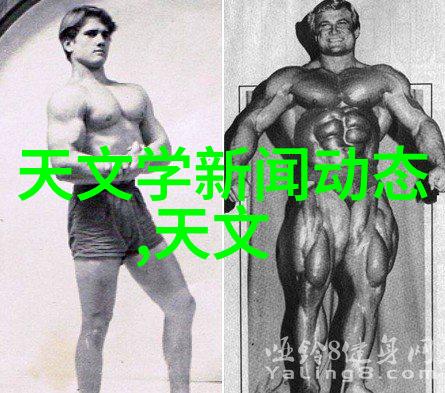
直播时间:2024年10月18日(周五)20:00-21:30
直播平台:
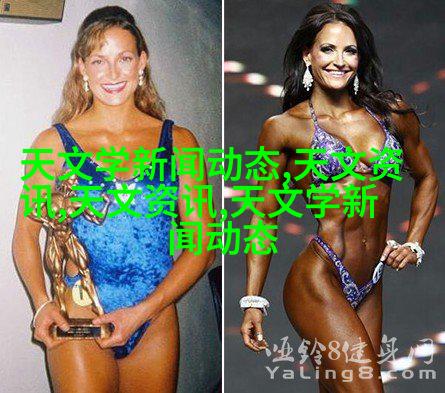
科学网APP
https://weibo.com/l/wblive/p/show/1022:2321325090831185870995
(科学网微博直播间链接)
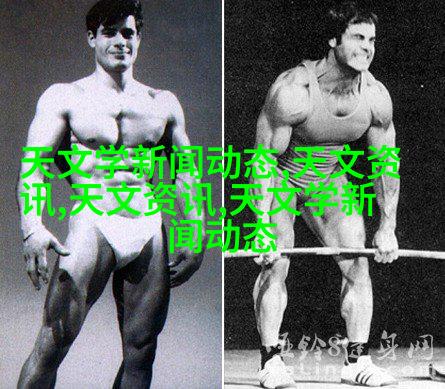
科学网微博
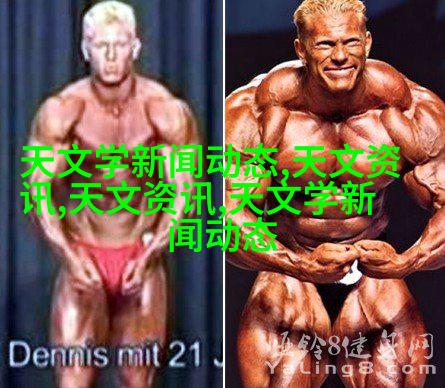
科学网视频号
北京时间2024年10月18日晚八点,iCANX Talks 第208期将邀请到了图卢兹大学Kremena Makasheva教授作为主讲嘉宾,马德里材料科学研究所José A. Martín-Gago教授,Plasma Matters B.V.公司CEO Diana Mihailova也将进行分享!北卡罗来纳州立大学Xiaoning Jiang,图卢兹第三大学Philippe Teulet两位教授担任研讨嘉宾,北京大学Haixia Zhang教授担任主持人。
这将是一场汇聚顶尖学者的盛会,共同探讨前沿科技与学术挑战!更多精彩,敬请期待!
【嘉宾介绍】
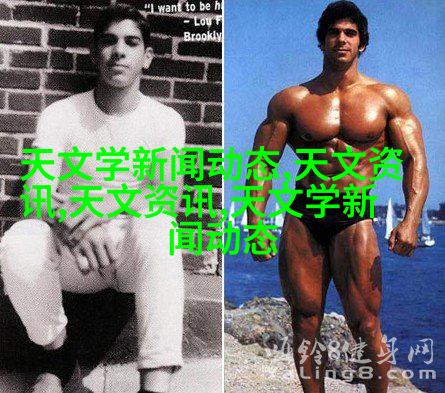
Kremena Makasheva
图卢兹大学
Plasma-Based Synthesis of Silver Nanoparticles Embedded in Dielectric Matrices and their Applications
【Abstract】
The current tendency in design of compact devices requires integration of different functionalities in the same structure. A way to respond to this demand is to apply multifunctional components when assembling the device. Typically, these multifunctional components are under the form of piled very thin layers or nanostructures with specific patterns. They offer the possibility for transition from material level of development to system level of applications. For example, to provide a dielectric layer with enlarged and well-controlled electrical properties, one can use metallic nanoparticles dispersed in it. In this general scheme, our scientific approach concerns the multifunctionality of silver nanoparticles (AgNPs) embedded in silica layers to form very thin nanostructures. The attractivity of AgNPs is based on their multifunctional properties, which allow addressing a large variety of applications, as demonstrated by our team. The optical properties of AgNPs were used to elaborate highly-performant plasmonic structures, aiming at a study of the conformational changes of proteins adsorbed on solid surfaces. Fine control of the AgNPs biocide properties was proved essential for fabrication of efficient and environmentally-friendly antimicrobial surfaces. The catalytic properties of AgNPs appear extremely helpful to advance our understanding and describe the role of metals in cosmic dust formation. In particular, this contribution focuses on the electrical charge injection and transport in thin dielectric layers containing AgNPs. The response of these nanostructures under electrical stress was found to be finely controlled via the AgNPs, thus providing solutions to avoid electrostatic issues in MEMS RF switches and HVDC cables. Electron emission from dielectrics under irradiation, which is critical for space applications, also can be controlled by incorporation of AgNPs. Combination of different AgNPs functionalities offers even larger scope when envisaging device assembly and fabrication.
当前紧凑型设备设计的趋势要求在同一结构中集成不同的功能。应对这一需求的一种方式是在组装设备时应用多功能组件。通常,这些多功能组件以堆叠的非常薄的层或具有特定图案的纳米结构的形式出现。它们提供了从材料级开发向系统级应用过渡的可能性。例如,为了提供具有扩大和良好控制的电学特性的介电层,可以使用分散在其中的金属纳米颗粒。在这一总体方案中,我们的科学方法关注嵌入在硅层中形成非常薄的纳米结构的银纳米颗粒(AgNPs)的多功能性。AgNPs的吸引力基于它们的多功能特性,这允许处理各种应用,正如我们团队所证明的。AgNPs的光学特性被用来开发高性能的等离子体结构,旨在研究吸附在固体表面上的蛋白质的构象变化。精细控制AgNPs的生物杀灭特性对于制造高效且环保的抗菌表面至关重要。AgNPs的催化特性对于推进我们对宇宙尘埃形成中金属作用的理解和描述极为有用。特别是这项工作集中于含有AgNPs的薄介电层中的电荷注入和传输。这些纳米结构在电应力下的响应被发现可以通过AgNPs精细控制,从而提供了避免MEMS射频开关和HVDC电缆中静电问题的解决方案。在辐射下介电材料的电子发射,这对于空间应用至关重要,也可以通过嵌入AgNPs来控制。结合不同的AgNPs功能,为设备组装和制造提供了更广阔的视野。
【BIOGRAPHY】
Kremena Makasheva is Director of Research at CNRS, Laboratory on Plasma and Conversion of Energy (LAPLACE), Toulouse, France. She obtained a Ph.D. degree on Plasma Physics from Sofia University, Bulgaria in 2002, for her work on surface wave sustained plasmas.
Currently her research focuses on reactive plasmas, design, synthesis and characterization of nanostructures for biomedical, optical, electrical engineering and space applications. Multifunctionality of silver nanoparticles (AgNPs) is in the heart of her research. In 2015 she and her colleagues proposed a AgNPs-based blocking layer to control charge injection and transport in dielectrics, with capacity to prevent dielectric charging in MEMS RF switches or to avoid breakdown phenomena in HVDC cables. Working also on the adhesion of proteins and microorganisms on solid surfaces she has a major contribution in the development of antimicrobial coatings with progressive release of the biocidal agent based on AgNPs embedded in dielectric matrices, thus providing a reduced environmental impact. She regularly serves IEEE Nanotechnology Council (IEEE NTC) with different actions. She was IEEE NTC Vice-President for Technical Activities in 2020-2021 and is currently IEEE NTC Vice-President for Conferences (2022-2023).
Kremena Makasheva是法国图卢兹CNRS等离子体与能量转换实验室(LAPLACE)的研究主任。她于2002年在保加利亚索非亚大学获得等离子体物理学博士学位,因为她在表面波维持等离子体方面的工作。目前,她的研究重点是活性等离子体、纳米结构的设计、合成和表征,这些纳米结构用于生物医学、光学、电气工程和空间应用。银纳米颗粒(AgNPs)的多功能性是她研究的核心。2015年,她和她的同事们提出了一种基于AgNPs的阻挡层,以控制介电材料中的电荷注入和传输,有能力防止MEMS射频开关中的介电充电或避免HVDC电缆中的击穿现象。她还研究了蛋白质和微生物在固体表面上的粘附,对开发基于AgNPs嵌入介电基质的渐进释放生物杀灭剂的抗菌涂层做出了重要贡献,从而减少了环境影响。她定期为IEEE纳米技术委员会(IEEE NTC)提供不同的服务。她曾在2020-2021年担任IEEE NTC技术活动,是IEEE NTC会议(2022-2023)。
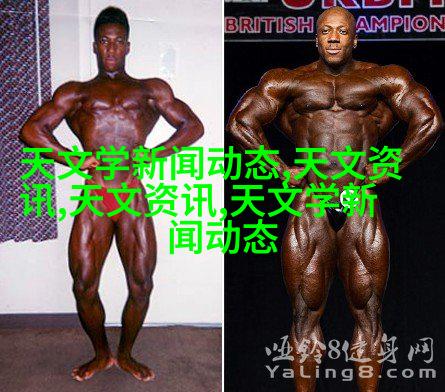
【ABSTRACT】
Nanoparticles are essential components in the advancement of nanotechnology, with revolutionary potential across various fields such as medicine, sensing, catalysis, and electrochemistry. Chemical methods are favored for their fabrication due to their simplicity, high production rate and low cost. However, these methods present certain limitations. Here, we present the STARDUST machine, a world-unique experimental ultra-high vacuum station devoted to the production, manipulation, processing and in-situ analysis of a wide variety of nanoparticles. STARDUST is designed to produce a high throughput of highly controlled nanoparticles, which can be collected on arbitrary surfaces for diverse applications. These nanoparticles exhibit a controlled structure (e.g., core-shell, alloys, oxides, hydrides…) allowing meticulous control over their chemical composition, size (ranging from 5 to 20 nm), purity, and coverage (from 0.1 monolayer to 500 nm). Various application examples will be presented.
纳米颗粒是纳米技术进步的基本组成部分,在医学、传感、催化和电化学等多个领域具有性的潜力。化学方法因其简单性、高生产率和低成本而受到青睐。然而,这些方法存在某些局限性。在这里,我们介绍了STARDUST机器,这是一个世界上独一无二的实验性超高真空站,致力于生产、操控、处理和原位分析各种纳米颗粒。STARDUST旨在生产大量高度受控的纳米颗粒,这些颗粒可以收集在任意表面上以用于多种应用。这些纳米颗粒展现出可控的结构(例如,核壳、合金、氧化物、氢化物……),允许对其化学组成、尺寸(从5到20纳米)、纯度和覆盖度(从0.1单层到500纳米)进行细致控制。将展示各种应用示例。
【BIOGRAPHY】
Director of the Institute of Materials Science of Madrid (ICMM-CSIC) from 2022. Research professor at ICMM-CSIC from 2012. Leader of the ESISNA group (Interdisciplinary studies based on nanoscopic systems) from its foundation in 2005. From 2003 to 2015: Associated scientist to the Astrobiology centre (CAB-INTA) where he set up the simulation of planetary environments technological unit, to mimic space environments. From 2020-2021: Invited professor at FZU-Prague. Mobility program at the Institute of Physics of the Czech academy of sciences for 7 moths. Invited professor at the university Paul-Sabatier (6 weeks in IRAP-CNRS lab)-2022. From 2016- 2021 elected president of the Spanish vacuum society (ASEVA). Member of the steering committee of the Spanish Solid State Science Group, Royal Spanish Physical Society. From 2010-2021, Spanish representative in the “executive council” of the “International union of vacuum science and technique and applications” (IUVSTA)-delegates from 34 countries. Member of the “program scientific board” of large installation facilities as: ESRF (Grenoble), ELETTRA (Italy) and ALBA (Barcelona). Member of the Review panels of different European Agencies. Multidisciplinary topics, involving different areas with a multi-technique approach, from basic science (nanoscience), vacuum technology to applications and technology transfer: ultra-sensitive Biosensors, functionalization of 2D materials, On-surface chemistry, astrochemical catalysis, prebiotic origin of life, artificial photosynthesis or vacuum technology. Chairman of several international conferences (RIVA-X and XI-Iberian meeting on vacuum and applications; Bilbao-17 and Sevilla 19). Symposium organizer on “quantum” at the EMRS Fall Meeting 2023. Formation of personal: 11 phD thesis supervised, 2 of them awarded with the distinction of best thesis of the year in physics by the Autónoma Univ. of Madrid. More than 20 fix-term post-doctoral positions supervised. 9 of them have got permanent positions in different scientific institutions including ICMM. Bibliographic records:200 JCR publications; 3 full books as main author.
2022年起担任马德里材料科学研究所(ICMM-CSIC)所长,2012年起在ICMM-CSIC担任研究教授。2005年成立以来,领导基于纳米系统的跨学科研究小组(ESISNA)。2003年至2015年:与天体生物学中心(CAB-INTA)的关联科学家,在那里他建立了模拟行星环境的技术单元,以模拟太空环境。2020-2021年:布拉格FZU的特邀教授。在捷克科学院物理研究所的流动性项目为期7个月。2022年在图卢兹大学保罗-萨巴蒂埃(6周在IRAP-CNRS实验室)的特邀教授。2016-2021年当选为西班牙真空学会(ASEVA)主席。西班牙固体科学小组指导委员会成员,西班牙皇家物理学会。2010-2021年,作为34个国家代表在“国际真空科学与技术及其应用联盟”(IUVSTA)的“执行委员会”中的西班牙代表。作为大型设施的“科学计划委员会”成员,如:ESRF(格勒诺布尔)、ELETTRA(意大利)和ALBA(巴塞罗那)。不同欧洲机构的审查小组的成员。涉及不同领域的多学科主题,采用多技术方法,从基础科学(纳米科学)、真空技术到应用和技术转移:超灵敏生物传感器、2D材料的功能化、表面化学、天体化学催化、生命起源前体、人工光合作用或真空技术。多个国际会议(RIVA-X和第十一届伊比利亚真空和应用会议;毕尔巴鄂-17和塞维利亚19)的主席。2023年EMRS秋季会议“量子”研讨会的组织者。个人形成:指导了11篇博士论文,其中2篇被马德里自治大学评为年度最佳物理论文。指导了20多个固定期限的博士后职位。其中9人在包括ICMM在内的不同科学机构获得了永久职位。文献记录:200篇JCR出版物;3本主要作者的完整书籍。

Diana Mihailova
The CEO of Plasma Matters B.V.
Modeling of plasma and particle growth in plasmas
【ABSTRACT】
Low-temperature plasma processes offer a particularly suitable solution to produce nanoparticles with a variety of chemical compositions, sizes and densities. Such nano-dusty plasmas became more of interest in the last decades and landed in various new plasma technologies. For example, the ability to selectively form and process nano-dust (sizes less than 100 nm) to enhance the structural, electrical, or mechanical properties of materials is a rapidly emerging industry. Nanometer-sized crystalline dust particles – so called quantum dots – can be utilized to enhance efficiency and stability of LED’s and solar cells and as probes for early cancer detection.
Fundamental understanding of the formation, growth and transport of dust is of great importance for the successful and efficient deployment of nano-dusty plasma technologies. Numerical plasma modeling is a powerful tool that can help not only the research community for the fundamental studies and interpreting experimental observations but can also serve industrial companies to answer technological questions promptly, cheaply and inspire the development of new plasma technologies.However, a self-consistent numerical model for complex nano-dusty plasma does not exist yet. We will present and demonstrate our effort towards the realization of such a complete plasma model that simulates dust particle formation, growth, and transport in plasma and describes self-consistently the interplay between the plasma, EM fields and dust particles. In addition, we aim at realization of a model that is computationally fast, has a sufficient predictive value and a high level of usability.
低温等离子体过程为生产具有多种化学组成、尺寸和密度的纳米颗粒提供了一个特别适合的解决方案。在过去的几十年中,这种纳米尘埃等离子体越来越受到关注,并在各种新的等离子体技术中得到应用。例如,选择性地形成和处理纳米尘埃(尺寸小于100纳米)以增强材料的结构、电学或机械性能,是一个迅速兴起的行业。纳米尺寸的晶体尘埃颗粒——所谓的量子点——可以用来提高LED和太阳能电池的效率和稳定性,并作为早期癌症检测的探针。
对尘埃的形成、生长和传输的基本理解对于成功和高效部署纳米尘埃等离子体技术至关重要。数值等离子体建模是一个强大的工具,它不仅可以帮助研究社区进行基础研究和解释实验观察,还可以为工业公司快速、廉价地回答技术问题,并激发新等离子体技术的发展。然而,一个自洽的复杂纳米尘埃等离子体数值模型尚不存在。我们将展示并演示我们为实现这样一个完整的等离子体模型所做的努力,该模型模拟等离子体中尘埃颗粒的形成、生长和传输,并自洽地描述等离子体、电磁场和尘埃颗粒之间的相互作用。此外,我们的目标是实现一个计算速度快、预测价值足够且使用水平高的模型。
【BIOGRAPHY】
Diana Mihailova is the CEO of Plasma Matters, B.V. – a software company that specializes in numerical simulations and modeling of plasmas for industrial applications. The company was founded in 2015 and it is a spin-off company from Eindhoven University of Technology, department of Applied physics, group “Elementary processes in gas discharges”.Diana Mihailova obtained her PhD degree in the same group at Eindhoven University of Technology, where she also worked as a postdoc. Her field of expertise is modeling low-temperature plasmas for various applications, such as sputter plasmas for laser applications, plasmas for material processing, atmospheric plasma jets for surface treatment, dielectric barrier discharges, micro plasmas for biomedical applications, inductively coupled plasmas and microwave plasmas.
Diana Mihailova是Plasma Matters, B.V.的首席执行官——这是一家专门从事等离子体数值模拟和建模的软件公司,服务于工业应用。该公司于2015年成立,是埃因霍温理工大学应用物理系“气体放电中的基本过程”小组的衍生公司。
Diana Mihailova在埃因霍温理工大学的同一小组获得了博士学位,并在那里担任博士后。她的专业领域是为各种应用建模低温等离子体,如用于激光应用的溅射等离子体、材料处理用等离子体、表面处理用大气等离子体射流、介质阻挡放电、生物医学应用用微型等离子体、感应耦合等离子体和微波等离子体。

